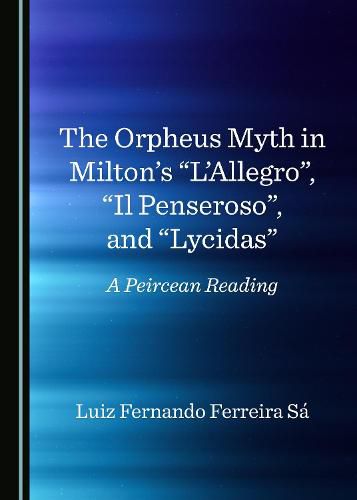Readings Newsletter
Become a Readings Member to make your shopping experience even easier.
Sign in or sign up for free!
You’re not far away from qualifying for FREE standard shipping within Australia
You’ve qualified for FREE standard shipping within Australia
The cart is loading…






In this study of John Milton’s L'Allegro , Il Penseroso , and Lycidas , the perspective of an interpreting sign serves as the basis for analysis of the poems’ allusions to the Orpheus myth. The idea of an interpretant proposed by Charles Sanders Peirce and the semiotic relations theorized by Jorgen Dines Johansen work as a lens that enables the reader to see the extent to which Milton recreated the Orpheus myth and used its recreating powers in his poems.Since the three poems have different and opposing voices, the Orpheus myth is the trigger behind the change of voices, as well as the modeling frame that underlies the transitions from an innocent to an enlightened viewpoint. Furthermore, readers in general and critics of all persuasions will have the chance to appreciate the presence of the Orpheus myth in Milton’s work as the fragmented configuration of consciousness in the process of defining two orders of existence: the human and the divine.
$9.00 standard shipping within Australia
FREE standard shipping within Australia for orders over $100.00
Express & International shipping calculated at checkout
In this study of John Milton’s L'Allegro , Il Penseroso , and Lycidas , the perspective of an interpreting sign serves as the basis for analysis of the poems’ allusions to the Orpheus myth. The idea of an interpretant proposed by Charles Sanders Peirce and the semiotic relations theorized by Jorgen Dines Johansen work as a lens that enables the reader to see the extent to which Milton recreated the Orpheus myth and used its recreating powers in his poems.Since the three poems have different and opposing voices, the Orpheus myth is the trigger behind the change of voices, as well as the modeling frame that underlies the transitions from an innocent to an enlightened viewpoint. Furthermore, readers in general and critics of all persuasions will have the chance to appreciate the presence of the Orpheus myth in Milton’s work as the fragmented configuration of consciousness in the process of defining two orders of existence: the human and the divine.